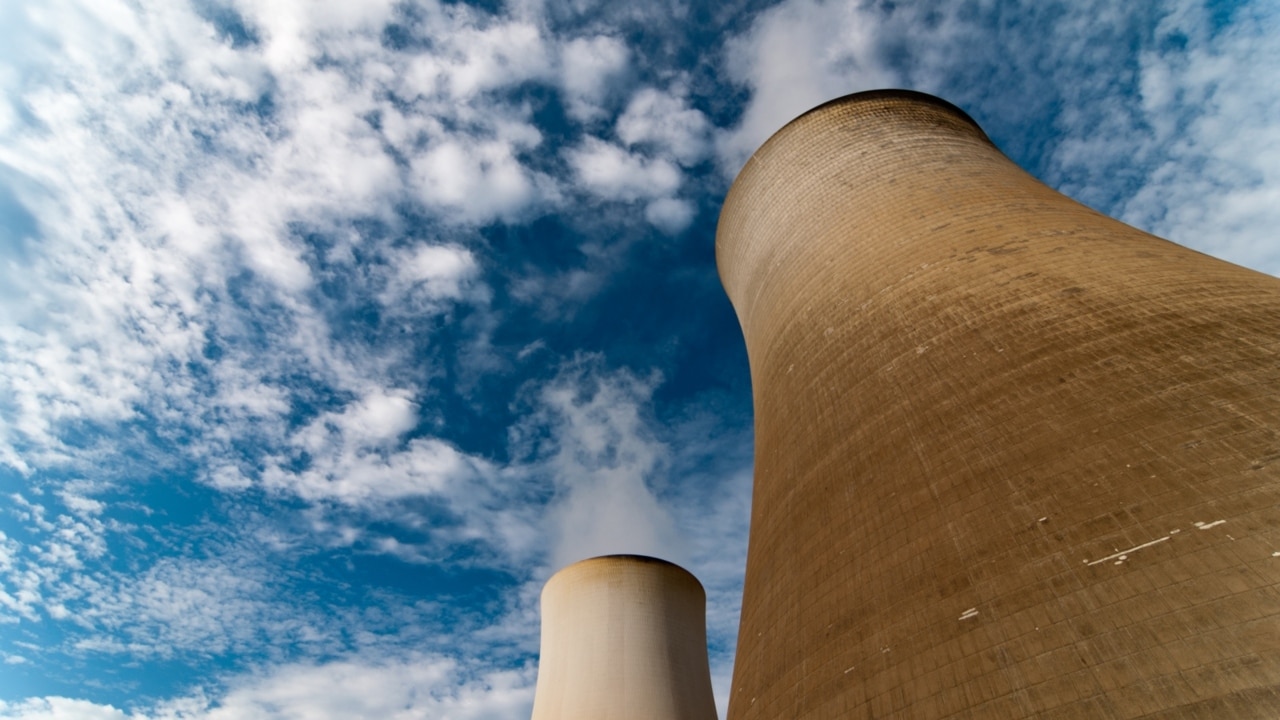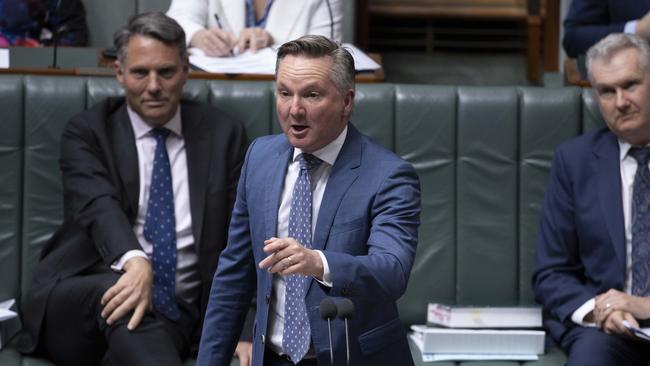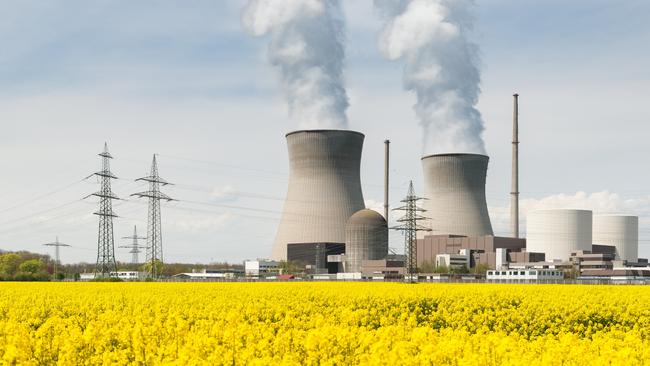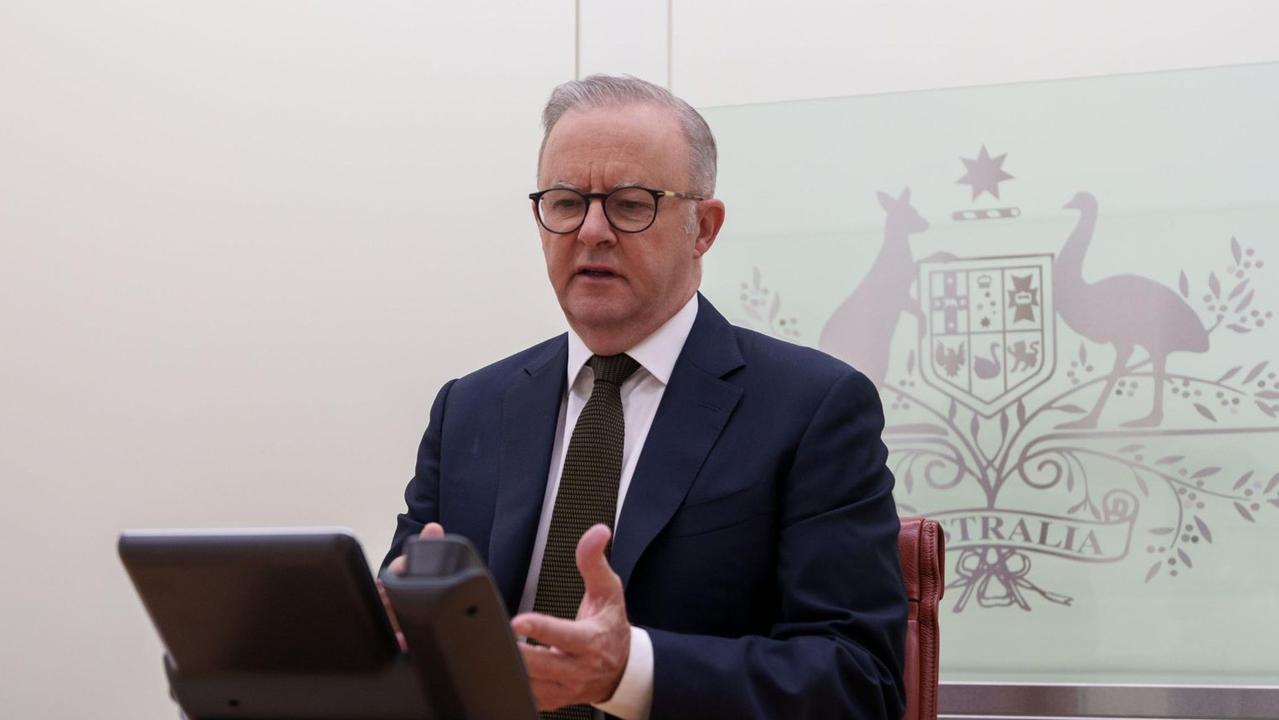Vikki Campion: Chris Bowen’s refusal to accept nuclear as viable is a big problem
Chris Bowen uses costs as an excuse for why he won’t consider nuclear energy in Australia and this week he ignored a conference that could have convinced him how wrong he is, writes Vikki Campion.

Opinion
Don't miss out on the headlines from Opinion. Followed categories will be added to My News.
The problem with Parliament House Canberra is ministers become so isolated they may as well be on a spaceship.
The ministry is disconnected from the backbench, the offices are disconnected from each other, the building is disconnected from Canberra, and Canberra is disconnected from the rest of Australia.
So when eminent engineers and nuclear scientists, with a combined 500 years of real-life international experience at the top level of complex power systems and an alphabet of letters after their names from PhDs to OAMs come into Parliament House, wouldn’t you think government MPs would want to listen to these people?
Apparently Energy and Climate Change Minister Chris Bowen – a former Fairfield councillor and political Adviser – knows more about powering the largest grid on Earth than they do.
The Teals must believe they are satisfied with their enlightenment and require no further knowledge, as they also failed to attend the two-day Power Generation in Australia’s Clean Energy Future conference featuring engineers who have worked on the most complex systems on Earth.

They should have heard the warning that we are betting the entire Australian economy on a net-zero scheme that cannot work, on renewable systems that are not significantly reducing emissions and that the actual cost of renewables to 2050 to us is an estimated $1.2 trillion.
Despite repeated invitations, Mr Bowen could not make it to a moment of the two-day conference, about a two-minute walk from his desk. He could have even asked questions.
He would have learnt that the transition is not cheaper. That once we build wind factories over our prime agricultural land, dig up our National Parks for high-voltage transmission lines, chop down our state forests for solar panels, the electricity price we pay will never go down – because we will never stop rebuilding them.
Minister Bowen uses costs as an excuse for why he won’t consider nuclear – yet engineer Dr David Hayden Collins, using AEMO figures, calculates the first generation of renewable capital at $383bn. When you include the costs of replacing batteries every 15 years, and wind towers and solar every 20 years to 2050, the cost is five times greater than what Bowen has budgeted – and it’s all still reliant on fossil fuel backup power.
Where we once built power stations that would serve three generations on Australian resources, under Bowen’s plans, we will be relying on Chinese-imported batteries that won’t see your child go from nappies to their Year 9 NAPLAN test.
Wind towers and solar panels must be pulled down and replaced every 20 years. Then we must figure out where to bury them – three times before 2050. There is no viable method to recycle wind factories or solar, so they get thrown into landfill.
As NSW virtue-signals on banning plastic straws at the pub, all states will need giant landfills for expired renewable junk.

Minister Bowen’s plan requires at least 28,000km of new transmission lines. His government signed off on Malcolm Turnbull’s legacy project, which will rip up 81ha of Kosciuszko National Park to erect a 330-kilovolt overhead double-circuit transmission line connecting Snowy Hydro 2.0 to the Australian energy market.
This will be repeated over and across regional Australia, with solar and wind farms stamped over prime agricultural land from as far as Melton, Ballarat, Hume and New England needed to power Sydney and Melbourne.
While Minister Bowen couldn’t make it, his Department of Climate Change in another room briefed out its community batteries program, where they will spend more than the average Australian does on their house on Chinese batteries they don’t expect to last the decade.
Once each community solar battery – at a price to the taxpayer of about $550,000 each – dies for good, we will be dropped in an international bidding war for more Chinese-made batteries that rely on rare minerals to produce.
This is why no other G20 nation is looking at a grid solely powered by intermittent flows.
As we rely on batteries, solar panels and wind turbines made in China, we impoverish Australia before an aggressive socialist behemoth that has no interest in us having a robust economy.
If Bowen had come tot he conference, he would have heard not only are we weakening our grid, but we will be expecting it to do more.
When his 2050 policy says everything from cars to cement plants will be electric, we will need a 215 per cent increase on the 200 terawatt hours of electricity we generate now.
He also would have heard advice from the International Energy Association that you need nuclear to decarbonise. From electrical engineers like James Fleay, who deployed major solar farms and built deep sea gas projects, to Professor Stephen Wilson, who developed the bankability model to store Hungary’s gas in an old oilfield after Putin turned off the gas tap from Russia.

He could have heard from Dr David Hayden Collins, who cannot believe we are destroying the environment to apparently save the planet.
He could have learnt that Canada leads the way with small modular nuclear reactors, the only low-emission power generator that can operate reliably, independent of the weather. That fission reactors can give an infinite supply of energy on just over a hectare of land, plugged into the existing grid with no extra transformers necessary.
And those at the conference wanted to hear from Bowen too. Why does he say nuclear is too expensive when more than 30 countries in the world rely on nuclear and pay less for power than we do? Why are family energy bills on nuclear in Canada, South Korea, the US, Taiwan and China half of ours?
When Bowen tells his colleagues in Question Time that no one will accept nuclear in their electorate, why are millions of Londoners and New Yorkers happy to live within 60km of a nuclear power plant?
Why do protesters in Finland wave “Go Nuclear” placards? Why have the Finnish Greens adopted it? Why has California’s parliament voted 157 to 3 to keep their last remaining nuclear power plant open?
The shame is Minister Bowen can go to the dispatch box every day and repeat the junk-level sugar advice he readily accepts. If he could spend just one conversation with any systems engineer, he would learn the crisis we are leaping towards. If a single engineer could replace the swagger of Bowen at the dispatch box with the cogent details of the grid before us, Australia would be better informed, better placed and less afraid.
Minister Bowen’s office on the blue carpet was a few hundred metres away from the room of experts on Thursday after the house rose and on Friday when he was tweeting victoriously of his electric vehicle discount passing the Senate.
Just a few small steps for a very fit man could have led to a giant leap in his knowledge.
Got a news tip? Email weekendtele@news.com.au





